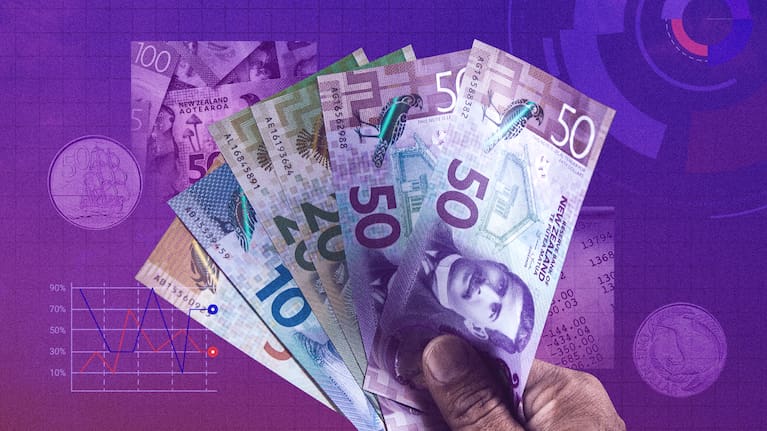Interest rate relief is on the cards for Kiwis in the second half of the year, according to food and agribusiness banking company Rabobank.
Inflation expectations in the New Zealand economy are "headed in the right direction," said Rabobank's senior market strategist Ben Picton.
He said the bank's view was the Official Cash Rate (OCR) has peaked at 5.5% and two rate cuts will be delivered by the Reserve Bank (RBNZ) in the second half of 2024.
On the contrary, ANZ economists tipped further rises in the OCR earlier this month.
Picton said a key factor for his bank's somewhat rosier forecast was a recent slump in economic activity, due, in part, to the constraints of the Covid-19 pandemic.
"We saw the supply side was under a lot of pressure and we saw demand was being juiced up by very low interest rates and lots of government spending, much the same as everywhere else around the world. And now the economy is kind of in transition. It's rebalancing," he said.
The economist said the third quarter of last year "showed a contraction in the size of the economy" spurred on by New Zealand's technical recession early in 2023.
"We expect that when we get the data for the last three months of 2023, that it could show another contraction, which would be another technical recession.
"This has helped to bring headline inflation down rapidly. Year-on-year inflation fell to 4.7% at the end of 2023, and inflation of just 0.5% in the fourth quarter was very encouraging. However, there is still some way to go to reach the midpoint of the RBNZ's 1%-3% target range," Picton said.
An additional factor supporting the bank's interest rate expectation, Picton said, was the significant time lag associated with monetary policy cuts.
"It can take a full two years for the full impacts of rate increases to take effect," he said.
"So we’re only now just starting to feel the full effects of the first rate hikes from late 2021 and early 2022, and any cuts made in the second half of this year won’t be fully felt for a long time."






















SHARE ME